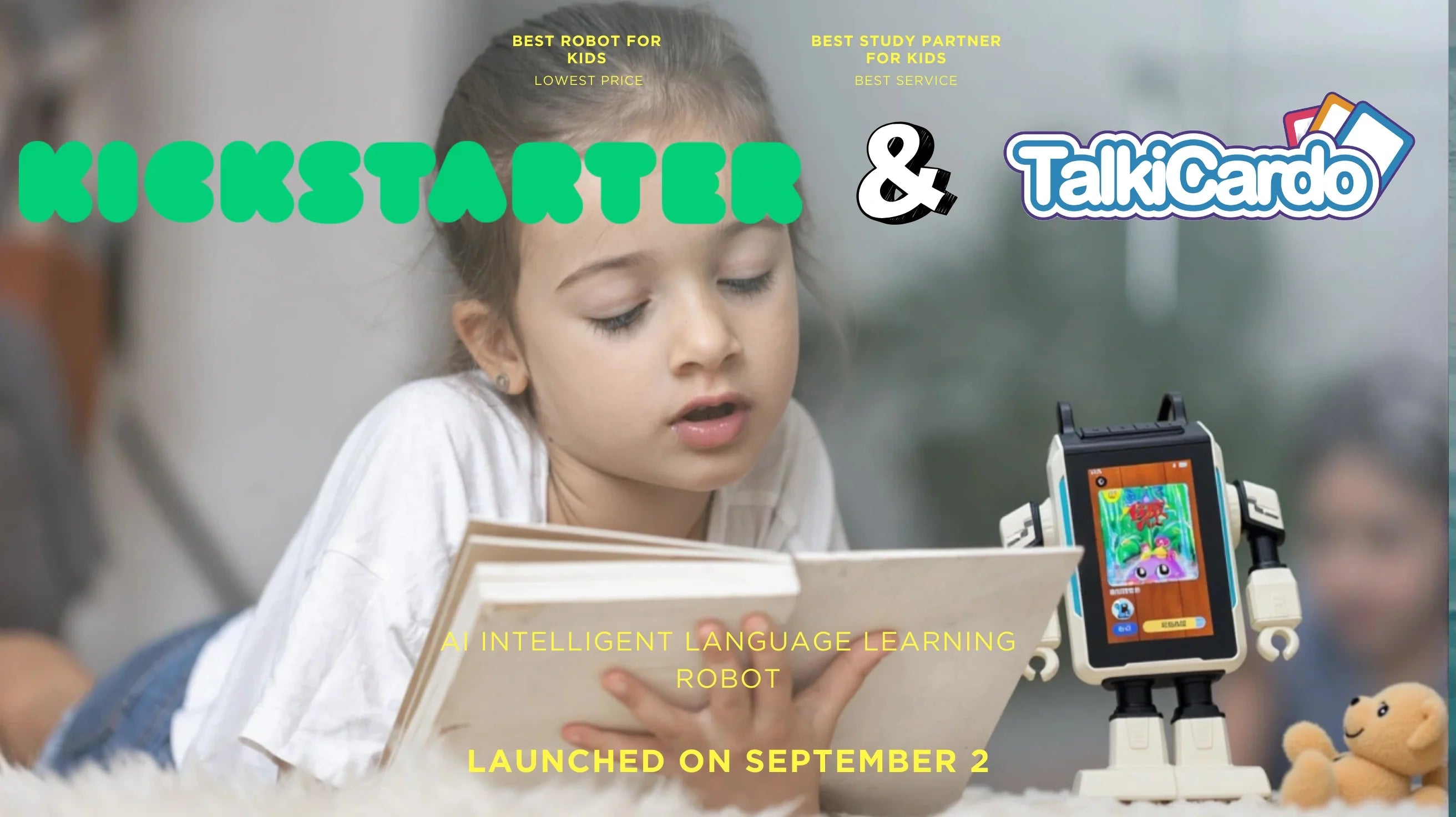
Building EEAT: How Ed-Tech Brands Can Establish Thought Leadership in APAC's Evolving Market
Posted by Aipilot on
Table Of Contents
- Understanding EEAT in the APAC Ed-Tech Landscape
- The Unique Challenges of Building Thought Leadership in APAC
- Demonstrating Expertise Through AI Innovation
- Establishing Experience With Region-Specific Solutions
- Building Authoritativeness Through Strategic Partnerships
- Fostering Trustworthiness With Ethical AI Practices
- Measuring and Communicating Your EEAT Impact
- Future Outlook: The Evolving Nature of Thought Leadership in APAC Ed-Tech
The education technology landscape across Asia-Pacific is experiencing unprecedented transformation. As AI reshapes learning paradigms and educational institutions embrace digital solutions, ed-tech brands face a critical challenge: how to establish genuine thought leadership in a diverse, rapidly evolving market. This is where EEAT—Expertise, Experience, Authoritativeness, and Trustworthiness—becomes not just a Google ranking factor but a fundamental business imperative.
For ed-tech innovators across APAC's varied markets, from Singapore's technology-forward ecosystem to emerging digital learning environments in Indonesia and Vietnam, demonstrating EEAT requires a nuanced understanding of regional educational needs, cultural contexts, and technological capabilities. The stakes are particularly high for companies leveraging artificial intelligence, where the promise of personalized learning intersects with legitimate concerns about data privacy, algorithmic bias, and the human elements of education.
This article explores how forward-thinking ed-tech brands can build and communicate meaningful thought leadership in APAC by developing region-specific expertise, showcasing relevant experience, establishing true authoritativeness, and maintaining unwavering trustworthiness—particularly in the context of AI-powered educational solutions.
Building EEAT in APAC EdTech
How education technology brands can establish thought leadership in Asia-Pacific markets
What is EEAT?
EEAT stands for:
- Expertise: Deep knowledge of regional educational systems
- Experience: Proven success implementing regional solutions
- Authoritativeness: Recognition as a credible voice
- Trustworthiness: Ethical practices in AI and data usage
APAC EdTech Challenges
- Cultural & linguistic diversity across countries
- Varying technology adoption between markets
- Regulatory fragmentation across regions
- Divergent educational priorities by country
4 Key Strategies for EdTech Thought Leadership in APAC
Expertise Through AI Innovation
- Solve specific regional learning challenges
- Research collaborations with institutions
- Balance technology with pedagogy
Region-Specific Experience
- Showcase local context adaptation
- Develop multilingual capabilities
- Document solution evolution
Strategic Partnerships
- Government collaborations
- Regional industry recognition
- Cross-sector partnerships
Ethical AI Practices
- Transparent data practices
- Cultural sensitivity in AI design
- Documented ethical frameworks
Market Insights: APAC Education Market Diversity
Singapore
Future skills focus
Merit-based system
Technology-forward
Japan
Balance of tradition
Strong cultural values
Group harmony
India
Scalable solutions
Massive student base
Diverse language needs
South Korea
Competitive focus
Tech-savvy students
Academic excellence
Future Outlook: EdTech Thought Leadership
Traditional & AI Integration
Balancing AI innovation with valued educational traditions across cultures
Cross-Border Collaboration
Technology enabling unprecedented regional educational cooperation
Ethical AI Focus
Regional approaches to AI fairness, privacy, and inclusion in education
Understanding EEAT in the APAC Ed-Tech Landscape
EEAT has evolved from a search engine ranking concept to a comprehensive framework for evaluating organizational credibility. For ed-tech brands in APAC, this framework takes on distinct regional characteristics that merit careful consideration.
Expertise in APAC ed-tech demands deep knowledge not only of educational technology but also of the region's diverse educational systems. Singapore's emphasis on future skills development contrasts with Japan's balance of technological adoption with traditional educational values. Meanwhile, markets like India prioritize scalable solutions that can reach massive student populations.
Experience requires demonstrated success in implementing solutions that address specific regional challenges. This includes navigating varied technology infrastructure, adapting to multilingual learning environments, and accounting for different stages of digital literacy among educators and students.
Authoritativeness in this context means being recognized as a credible voice by educational institutions, government bodies, and industry peers across multiple APAC markets—not just in one country or subregion.
Trustworthiness is perhaps the most critical element, particularly for AI-driven solutions where data handling practices, algorithmic transparency, and commitment to educational outcomes rather than just technological advancement become paramount.
The Unique Challenges of Building Thought Leadership in APAC
The APAC region presents distinct challenges for ed-tech brands seeking to establish thought leadership:
Cultural and linguistic diversity across APAC necessitates nuanced approaches to content and solutions. A one-size-fits-all strategy from Western markets often fails to resonate with educators and learners across countries like China, Malaysia, Thailand, and Australia—each with their own educational philosophies and practices.
Varying stages of technological adoption mean that thought leadership must simultaneously address advanced AI integration for mature markets while providing foundational guidance for emerging ones. Singapore may be ready for sophisticated AI teaching assistants, while other markets may still be building basic digital infrastructure.
Regulatory fragmentation across APAC creates a complex compliance landscape. Data protection laws differ significantly between countries like Singapore (with its PDPA), Japan's Act on Protection of Personal Information, and India's evolving regulatory framework. Thought leaders must navigate these variations when discussing AI implementation.
Educational priorities diverge based on economic and social factors. South Korea's emphasis on competitive academic achievement contrasts with emerging focus on socio-emotional learning in countries like New Zealand. Effective thought leadership acknowledges these different priorities rather than prescribing universal approaches.
Demonstrating Expertise Through AI Innovation
For ed-tech brands building EEAT in APAC, demonstrating genuine expertise through AI innovation requires balancing cutting-edge technology with educational substance:
Solving specific regional learning challenges demonstrates more meaningful expertise than broadly applying generic AI solutions. For instance, AI-powered language learning tools like TalkiCardo that address the unique challenges of English acquisition for Asian language speakers show targeted expertise rather than general AI capabilities.
Research collaboration with regional institutions strengthens expertise credentials. Brands that partner with universities across APAC to study educational outcomes of AI interventions demonstrate commitment to evidence-based innovation rather than technology for its own sake.
Thought leadership content should balance technological and pedagogical insights. Articles, white papers, and presentations that only focus on AI capabilities without connecting to established learning theories or regional educational contexts will fail to demonstrate true expertise.
Accessible explanation of complex technologies is itself a form of expertise demonstration. Education stakeholders need to understand how solutions like AI teaching assistants function without requiring advanced technical knowledge. Brands that excel at making complex AI concepts understandable to educators build stronger expertise perception.
Establishing Experience With Region-Specific Solutions
Experience in EEAT goes beyond general deployment metrics to showcase deep understanding of regional implementation challenges and successes:
Case studies should highlight adaptation to local contexts, not just technical implementation. For example, documenting how an AI solution was modified to align with Singapore's emphasis on critical thinking within its education system demonstrates valuable region-specific experience.
Multilingual capabilities represent significant experience in the APAC context. Solutions like TalkiTrans that provide AI-powered simultaneous interpretation demonstrate experience addressing one of the region's fundamental educational challenges—language barriers in multinational learning environments.
Long-term partnerships with educational institutions provide compelling evidence of sustained experience. Ed-tech brands should showcase ongoing relationships with schools, universities, and training centers across different APAC markets rather than one-time implementations.
Documented evolution of solutions in response to regional feedback demonstrates adaptive experience. Showing how your AI educational tools have been refined based on input from APAC educators proves responsiveness to local needs rather than imposing external solutions.
Case Study: Adaptation for Regional Effectiveness
Consider how AI learning tools might need different approaches across APAC markets:
In Japan, effective AI educational solutions might emphasize group harmony and collaborative learning while providing discreet, private feedback to avoid singling out students—aligning with cultural values around collective achievement and saving face.
In contrast, implementations in Singapore might emphasize competitive benchmarking and advanced analytics to support its merit-based educational culture, while still incorporating collaborative elements that support national initiatives around creativity and innovation.
Brands that document these nuanced implementations demonstrate experience that goes beyond technical deployment to true regional understanding.
Building Authoritativeness Through Strategic Partnerships
Authoritativeness in APAC ed-tech requires recognition from established regional stakeholders and contribution to meaningful educational conversations:
Government collaboration and endorsement carries particular weight in many APAC markets where education remains centrally influenced. Education ministries in countries like Singapore, Malaysia, and Vietnam often play crucial roles in technology adoption. Brands that secure government partnerships gain significant authoritativeness.
Industry recognition through awards and certifications specific to the region helps establish authoritativeness. Recognition from organizations like the Asia-Pacific Educational Research Association or country-specific educational technology associations validates a brand's standing.
Thought leadership platforms must extend beyond company channels. Contributing to respected regional educational publications, speaking at major APAC education conferences, and participating in policy discussions elevates authoritativeness beyond self-promotion.
Cross-sector partnerships demonstrate broader authoritativeness. Ed-tech brands that collaborate with both educational institutions and major technology companies in APAC position themselves at the intersection of education and innovation—a powerful authoritativeness signal.
For solutions like AI Mouse that integrate voice control for educational purposes, authoritativeness might come from partnerships with accessibility organizations across APAC that validate its benefits for diverse learners with different needs.
Fostering Trustworthiness With Ethical AI Practices
In APAC's diverse regulatory and cultural environment, trustworthiness for AI-driven ed-tech brands requires particular attention to ethical practices:
Transparent data practices should be adapted to regional expectations and regulations. While Singapore's Personal Data Protection Act creates specific requirements for educational data, other markets may have different standards. Clear communication about how student data is collected, used, and protected—in language accessible to all stakeholders—builds fundamental trust.
Cultural sensitivity in AI design demonstrates respect for regional values. AI-powered educational content should be evaluated for cultural appropriateness across different APAC contexts, from religious considerations to historical sensitivities and local customs.
Ethical AI frameworks should be explicitly documented and shared publicly. Brands building trustworthiness make their AI development principles transparent, addressing issues like algorithmic bias and fairness in assessment with specific reference to APAC educational contexts.
Human oversight of AI systems remains essential for trustworthiness. Education stakeholders across APAC want assurance that AI teaching assistants and assessment tools support rather than replace human educators. Brands should clearly articulate how their AI solutions maintain appropriate human involvement.
Addressing Regional Concerns About AI in Education
Trustworthy thought leadership directly addresses common concerns about AI in education with regional specificity:
In markets with high educational pressure like South Korea, Singapore, and parts of China, parents and educators may worry that AI tools will increase competitive pressure or create new inequalities. Thought leadership should directly address how AI can reduce rather than amplify stress while promoting equitable access.
In markets with strong traditional educational values like Japan and Vietnam, stakeholders may fear AI will undermine important cultural elements of education. Trustworthy content explains how AI can enhance rather than replace valued human interactions and cultural transmission.
Measuring and Communicating Your EEAT Impact
Effective thought leadership in APAC ed-tech requires systematic measurement and communication of EEAT impact:
Localized success metrics should reflect regional priorities. While Singapore might emphasize 21st-century skills development, Indonesia might prioritize expanded educational access. Brands should develop and report on metrics that align with each market's specific educational goals.
Research validation from regional institutions provides powerful evidence. Partnering with respected universities across different APAC countries to study your solutions' effectiveness creates credible third-party validation of your impact.
Multi-format communication reaches diverse stakeholders. Technical white papers may influence policy makers, while case studies with emotional narratives might resonate with educators and parents. Effective thought leadership adapts format and language to different audiences across the region.
Testimonials should represent the region's diversity. Featuring voices from different countries, educational roles, and types of institutions demonstrates broad impact rather than isolated success.
Future Outlook: The Evolving Nature of Thought Leadership in APAC Ed-Tech
As APAC's ed-tech landscape continues to evolve, thought leadership approaches must anticipate emerging trends and challenges:
Integration of AI with traditional educational values will become increasingly important. Future thought leadership will need to address how innovations like AI oral practice robots for kids can support rather than supplant valued educational traditions across diverse APAC cultures.
Cross-border educational collaboration enabled by technology presents new opportunities. Tools like TalkiTrans that break down language barriers can facilitate unprecedented regional educational cooperation. Forward-thinking thought leadership will explore these possibilities.
Ethical considerations will gain prominence as AI becomes more sophisticated. Thought leaders must address evolving questions about AI's role in assessment, personalization, and educational decision-making with sensitivity to different regional perspectives on fairness, privacy, and human development.
Accessibility and inclusion will remain central challenges across APAC's diverse markets. Genuine thought leadership will increasingly focus on how AI can bridge rather than widen educational divides between urban and rural areas, different socioeconomic groups, and learners with varied needs.
Building EEAT for ed-tech brands in APAC's diverse educational landscape requires going beyond generic thought leadership to develop genuine regional expertise, demonstrate contextually relevant experience, establish authoritativeness through strategic partnerships, and maintain unwavering trustworthiness in AI practices.
The most successful thought leaders in this space will be those who recognize that APAC is not a monolithic market but a rich tapestry of educational traditions, technological readiness levels, regulatory frameworks, and cultural contexts. They will develop region-specific insights while addressing universal educational aspirations.
For AI-driven ed-tech innovations to fulfill their transformative potential across APAC, brands must balance technological innovation with deep educational purpose, maintaining human connection even as they leverage advanced algorithms. This balanced approach—respecting educational traditions while embracing technological possibilities—represents the essence of meaningful thought leadership in APAC's evolving ed-tech landscape.
By establishing and communicating EEAT through nuanced, regionally-aware thought leadership, ed-tech brands can build lasting credibility that transcends marketing to become genuine partners in APAC's educational advancement. In a region that represents over 60% of the world's student population, this thoughtful approach to EEAT doesn't just build brand value—it contributes to educational transformation at an unprecedented scale.


















































